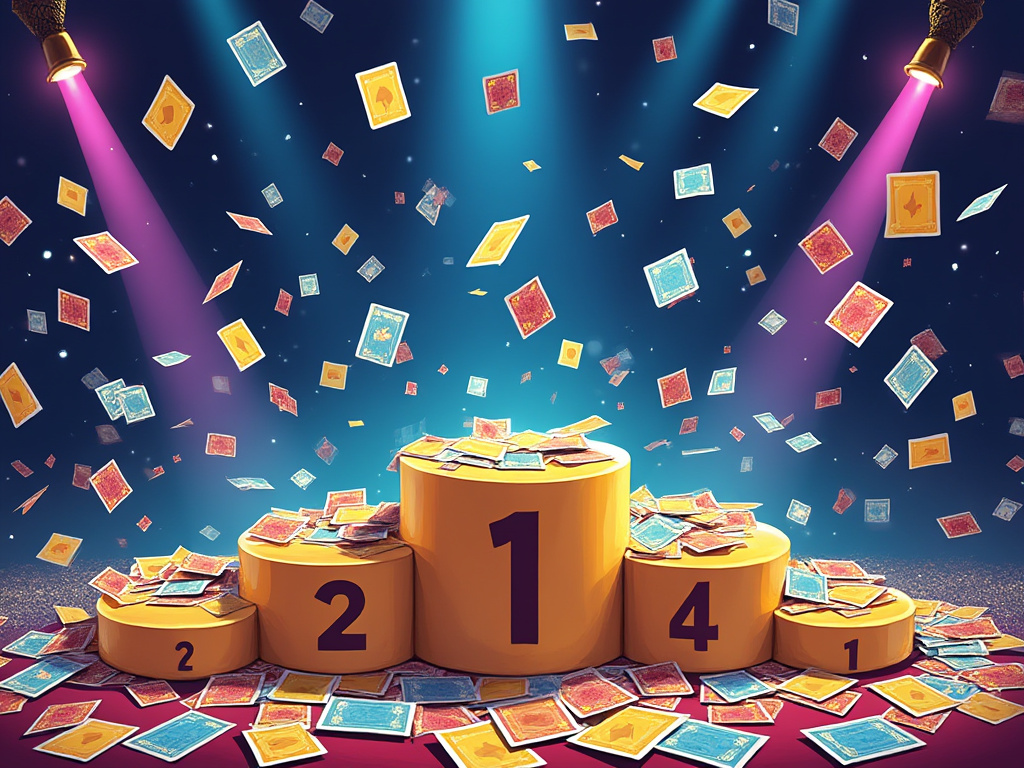What Are Card Decks & Why have Cards Become a Popular Medium
A collection of cards,grouped with purpose. Each has unique text, images, or symbols. Used for activities like games, learning, divination, creativity, or personal growth.

A card deck, in its broadest sense, is a collection of individual cards that are grouped together for a specific purpose. Each card typically has unique content, such as text, images, or symbols, which can be used for various activities like games, learning, divination, creativity, or personal growth. While most people are familiar with playing cards used for games like poker or solitaire, the world of card decks is vast and diverse.
Here are some of the many types of card decks:
1. Playing Cards
- The traditional deck (usually 52 cards) used for games like poker, bridge, and blackjack. Playing cards have different suits (hearts, diamonds, clubs, spades) and face values (numbers and face cards).
2. Tarot and Oracle Cards
- Tarot cards, often used for divination or introspection, consist of 78 cards with symbolic imagery that can help people reflect on life, emotions, and future possibilities. Oracle decks are similar but more varied in structure, offering guidance or inspiration without a strict card count or theme.
3. Flashcards
- Used for education, flashcards present a question, concept, or image on one side and an answer or explanation on the other. They’re commonly used to learn languages, memorize facts, or reinforce knowledge in any subject.
4. Affirmation and Mindfulness Cards
- These decks contain positive affirmations, quotes, or exercises to help people focus on self-care, mindfulness, and mental well-being. Users can draw a card to set an intention for the day or reflect on a specific idea.
5. Creativity Prompt Cards
- Used by writers, artists, or creators, these decks provide prompts or ideas to inspire creative work. They might suggest a scene, a character, or a drawing exercise to spark imagination.
6. Game-Specific Decks
- These are decks created specifically for board games, tabletop role-playing games, or card games like “Magic: The Gathering” or “Cards Against Humanity.” Each card has unique rules or effects that enhance the game experience.
7. Collectible Cards
- These are often part of games but can be collected for their rarity, artwork, or themes, such as sports cards (e.g., baseball cards) or trading card games.
8. Conversation Starters or Icebreakers
- Decks designed to encourage deep or lighthearted conversation by presenting thought-provoking questions or scenarios. These are used in social settings to foster connection.
9. Health and Fitness Cards
- These decks contain exercises, stretches, or fitness routines, often used as a fun way to mix up workouts or focus on different areas of physical well-being.
10. Business and Productivity Cards
- Cards that offer tips, strategies, or frameworks for improving productivity, teamwork, or business skills. They might focus on brainstorming, decision-making, or time management.
Why Are Card Decks So Popular?
Card decks are popular for several reasons:
- Tangible and Interactive: Unlike a book or a long list of ideas, cards allow for tactile interaction, letting people shuffle, draw, or arrange them in a way that feels personal and engaging.
- Bite-Sized Information: Each card typically contains a single idea, making the information easy to digest and absorb without feeling overwhelming.
- Variety and Customization: The same deck can be used in different ways depending on the draw, shuffle, or user’s intention, giving people flexibility in how they approach the content.
- Portable and Convenient: Decks are small and easy to carry around, allowing people to take them to various settings, whether it’s for entertainment, self-reflection, or learning on the go.
- Versatile Across Interests: With over 100,000 unique card decks, there’s a deck for almost every interest—from personal growth to trivia games, from spiritual practices to learning tools.